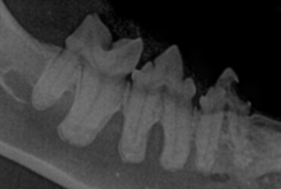Feline Oral Care: Understanding & Treating Your Cat’s Dental Needs
We’ve all heard the saying, “Cats aren’t just small dogs,” and this is especially true when it comes to oral and dental health. Cats have unique dental structures and oral diseases that require specialized knowledge and care. At Pet Dental Center, we are dedicated to providing the highest level of feline dentistry, whether your cat needs routine care or advanced treatment for serious oral conditions.
Why Do Cats Develop Dental Problems?
In the wild, cats are strict carnivores, and their sharp, pointed teeth—called secodont dentition—are designed for tearing and shearing meat. However, domestic cats typically eat commercial diets like kibble or wet food, which do not engage their teeth in the way nature intended. This lack of natural function often leads to two of the most common feline dental diseases:
✔️ Periodontal Disease – Caused by plaque and tartar buildup, leading to gum infections, tooth loss, and pain. This affects nearly all domestic cats at some point in their lives.
✔️ Tooth Resorption – A painful condition where a cat’s teeth slowly break down and dissolve, often requiring extraction. Studies suggest that over 50% of cats develop this disease, making it one of the most common oral conditions in felines.
How Can Dental Disease in Cats Be Treated?
Many pet parents wonder if their cat’s dental disease can be treated without extractions. While preventative care is always the goal, once significant dental disease has developed, extractions are often the best and only solution. Treating feline dental disease requires specialized skills and knowledge to ensure safe and effective care.
✔️ Dental X-Rays Are Essential – It is impossible to properly diagnose or treat feline dental disease without full-mouth radiographs. Many oral issues in cats occur beneath the gumline, and without imaging, painful conditions can go undetected and untreated.
✔️ Stomatitis in Cats – Cats can develop a unique and painful condition called stomatitis, an intense inflammation of the mouth that often requires surgical intervention or long-term medical management. This condition can be challenging to treat, but at Pet Dental Center, we have the expertise to provide the most effective care.
How Can I Prevent Dental Disease in My Cat?
Because dental disease is so common in cats, early intervention and routine care are crucial. Here’s what you can do to help protect your feline friend’s oral health:
✔️ Schedule Regular Veterinary Dental Exams – Cats hide pain very well, so don’t wait for signs of discomfort before seeking care. Routine check-ups help catch problems early.
✔️ Consider Professional Cleanings – Even with at-home care, plaque and tartar build up over time, leading to periodontal disease. Professional dental cleanings under anesthesia help prevent more severe issues.
✔️ Monitor for Symptoms of Dental Pain – Common signs of feline dental disease include:
🔹 Bad breath
🔹 Drooling or pawing at the mouth
🔹 Difficulty eating or chewing on one side
🔹 Weight loss or decreased appetite
🔹 Swelling around the mouth or face
If you notice any of these signs, it’s time to schedule an exam.
Why Choose Pet Dental Center for Your Cat’s Oral Care?
At Pet Dental Center, we understand that cats have unique dental needs, and we are equipped with the specialized training, technology, and experience to provide the best care possible. Whether your cat needs a routine dental cleaning, extractions, or treatment for a complex oral disease, we are here to ensure their comfort, health, and happiness.
If you have concerns about your cat’s dental health or want to schedule an exam, contact us today!

Dental X-ray of tooth resorption of a premolar in a cat

Stomatitis in a cat

